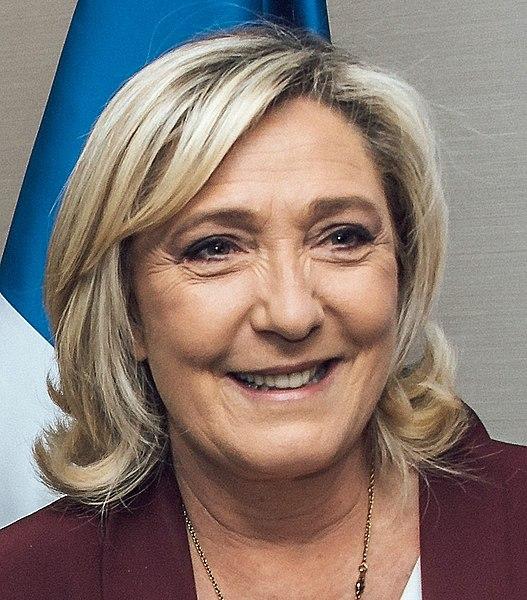
If you are like me—a non-French citizen who only attends French politics on sporadic occasions—you probably know Marine Le Pen as what she’s notorious for: a Far-right extremist thinly disguising her nationalistic zealotry in a bid to occupy France’s presidential chair.
You’d think she’s the kind of aspiring policymaker with ulterior motives such as banning Muslim women from wearing scarfs, shutting down mosques, curbing all immigration, slowly eroding the EU’s authority, reconciliating with Vladimir Putin and other fellow totalitarianists, and perhaps—in her idealistic pipedreams—restoring France as a colonial empire.
But incited by the ongoing election, I decided to leave aside my general notions and take a look at what her actual policy plan is.
With regard to political and social issues, there was no surprise; her intended actions plainly aim to promote the expected, aforementioned motives. The bewilderment came with her economic program, which includes:
- Lowering the retirement age to 60 for workers who entered the labor market before 20
- Exempting workers below 30 years of age from income tax
- Reducing VAT for energy products from 20% to 5.5%
- Scraping VAT altogether for basic goods
- Setting prices after state intervention
- Protecting and subsidizing domestic industries
- Nationalizing motorways
… and such measures, which basically mean spending, spending, and more lavish spending.
I am not an economic analyst, and my intention here isn’t to examine how feasible these policies would be. The reason I am writing about them is simply because they stroke me as bizarre; policies that simply shouldn’t have been drafted by her.
Indeed, such policies echo Le Pen’s perceived political antipode: Left-wing populists of the likes of Pablo Iglesias or Alexis Tsipras.
This odd alignment between the traditional Right and Left of the political spectrum confirms a trend I have been observing over the past few years: that the historic political polarization is fading, and adherents of both extremes are gradually merging into a united front against the established, moderate world order.
This tendency has been amplified by the ongoing war in Ukraine. It seems that the Russian propaganda machine has understood it and capitalizes on it; deliberately targeting all extremists with its misinformation campaigns and banding them together under its cause. I have been nonplussed to see how Fascists and Anarchists have become Putin’s most fervent upholders in the West, while Nationalists and Communists have been turned at least into lukewarm sympathizers of him.
I believe this phenomenon is produced by the simple fact of the world having changed dramatically over the past few decades. We linger on the habit of speaking about modern politics in terms of the previous century.
Communists regularly speak about a class conflict along identical lines to Marx’s in the 1840s. But it is 2022 and there is no such struggle anymore. Workers in the developed world are unionized professionals. The middle class in the developing world is growing rapidly—some 700 million people were added to it over the past 20 years in China alone. Most countries worldwide have enacted some form of welfare state… Inequality and corruption are still big problems. But this isn’t the same as a 19th-century class struggle, and all governments around the world—save the relic of North Korea—have recognized that the most reasonable course to tackle these issues goes through the framework of subtly regulated free-market Capitalism. Communism as an economic system has irrevocably collapsed.
Nationalists, on the other hand, fantasize about the reinstation of their countries as fully sovereign powers that could keep foreigners out, preserve their so-perceived sacred blood and skin color, and perhaps wage a few bloody ventures to recapture lost lands of their decomposed forefathers from their neighbors… But again, this is 2022. Young people have grown accustomed to casually hopping on flights across the globe and contacting their friends there with a tap of a finger. Young, educated people from all around the world share the exact same worriments: climate change, nuclear proliferation, hazards of unsafely developed technologies… They don’t care about bygone ideals of national grandeur.
So it seems that what fundamentally draws people to political extremes is not anymore some battle between imagined classes or nations, but the sole relevant ideological clash of our times: the one between progressive Globalism and old-minded Fractionalism.
It is a psychological imperative for humans to belong to some intimate group. The people who feel most disenfranchised and alienated from society are the ones who end up most extremely attached to the most intimate of such groups. As much as they need a core of friends to affiliate with, they also need an enemy to give purpose to their affiliation.
Some find their foe in the evil rich; others, in the evil inhabitants of another country. But what they have in common is a need for an enemy to justify their existentially-relieving association. Whether they cling to a political party, a class, a race, a nation, or a religion, they all regard globalization as a force set to destroy their cherished groups. And they are right; globalization is a scheme by definition aiming to eradicate our troublesome divisions—only that it yet hasn’t aptly taken into consideration humans’ primordial psychological anxieties. Hence all extremists seem to gravitate toward finding a new, universal enemy in a system that aspires to eliminate all faces of extremism.
So the classical political spectrum of the previous century…
… may in this century come about to look like this:
